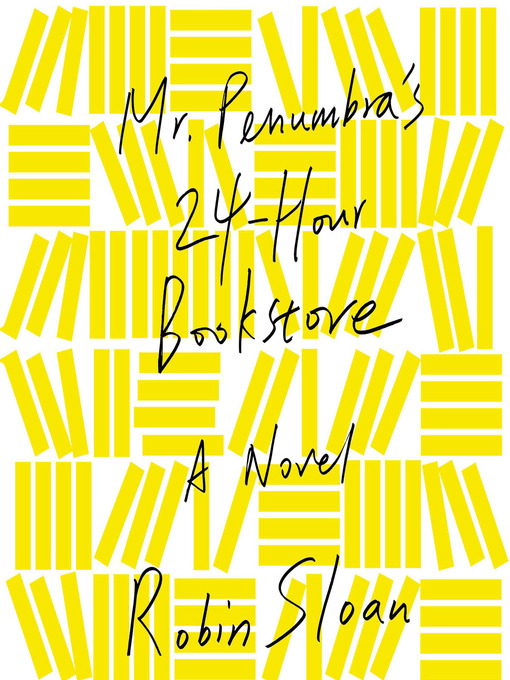 It’s that time of year when we leave the hot Kitchen and make for the beach or mountains. Summer playtime has given rise to the genre known as summer reading, which is characterized as nonserious reading for serious people. I have a candidate for a best book for the beach; it is a book about books and other concerns of the stalwart readers of the Scholarly Kitchen. I simply loved it and, no, it is not a serious book. It will not make you smarter or thinner; it won’t improve your citation count. To the question Why would you read such a book? the answer is that it is like popcorn at the movies: Why not?
It’s that time of year when we leave the hot Kitchen and make for the beach or mountains. Summer playtime has given rise to the genre known as summer reading, which is characterized as nonserious reading for serious people. I have a candidate for a best book for the beach; it is a book about books and other concerns of the stalwart readers of the Scholarly Kitchen. I simply loved it and, no, it is not a serious book. It will not make you smarter or thinner; it won’t improve your citation count. To the question Why would you read such a book? the answer is that it is like popcorn at the movies: Why not?
But first a note on summer reading, a topic that I keep coming back to. It amuses me that summer reading somehow implies its opposite, which I guess you could call “winter reading,” but “serious reading” is more like it. The assumption seems to be that in the autumn as the days shorten, we will return to the important task of reading Books That Are Good for Us — “good” being defined as intellectually serious and perhaps engaged with social matters of import. So dust off that Montesquieu, reach for the new translation of Novum Organum: get back to the hard work of reading. For someone whose literary hero is Eric Cartman of South Park, this is too much. All reading should be summer reading, not because seriousness should be pushed aside but because a sense of play should never be absent from anything.
How much fun Robin Sloan must have had in writing my nominee, Mr. Penumbra’s 24-Hour Bookstore! This is a novel set in a San Francisco that is all too familiar in the media coverage today of that city. It’s all young people and high tech, roommates and impossible projects. The book is narrated by Clay Jannon, an out-of-work Web designer, who luckily lands a job at Mr. Penumbra’s shop, which is like no bookstore we have ever seen, but in some respects is like many we have imagined. It could have come out of a gothic novel, or Harry Potter.
Clay soon realizes that this is no ordinary bookstore but the cryptic face of a secret society dedicated to discovering the secret of eternal life. The books in the store are encrypted spiritual biographies written by members of the society. All labor to decode the master text, that written by Aldus Manutius (1449-1515), one of the first printers. What Clay realizes is that this puzzle could be more easily solved through the use of computers. And that gets the story going.
Clay enlists the help of a roommate, a longtime friend, and a young woman, soon to become a girlfriend, to go on a quest (the term has literal significance in the story) to solve the puzzle. The woman, Kat Potente, is the PI here. She rapidly enlists the aid of a number of extraordinary Internet services — Hadoop, Google Street View, and Mechanical Turk — and makes some startling discoveries. Along the way the point is made that these tools are unprecedented, that they unleash power on a scale we have never before imagined. But Sloan’s take on this is always humorous; he jokes that if you are impressed with some of these things, you must be “over 30.” Touche.
The boy-meets-girl theme developed here proceeds along conventional lines, though updated for the current orthodoxy. Thus Kat is blonde (of course), but also brilliant, a Stanford graduate, and a high-ranking employee at Google. A movie version of the book no doubt will latch onto one of the book’s iconic scenes: Kat Potente lying naked on a bed after lovemaking with Clay (the book’s sex is G-rated, but Mammon only knows what a movie would do with this) with her laptop propped on her belly. And it’s back to work! I suppose this is better than smoking a cigarette.
The problem with any book that flirts with fantasy, whether a satire or not, is that at some point it has to have a reckoning. I won’t spoil the ending of Mr. Penumbra, but, yes, a reckoning does take place. Clay solves the mystery–and life goes on. But not, alas, with Kat.
My sole objection to this book is that I already finished it. I have a week on the beach coming up, and what am I going to read? Suggestions from the more playful readers of the Kitchen are appreciated. That is why we invite comments. Or we could watch an episode of South Park together.
Discussion
10 Thoughts on "Summertime and the Reading Is Easy"
So excited to see this great read featured on the Kitchen! I binge-read Penumbra early this spring (Because I like popcorn even when I’m not at the movies) and thoroughly enjoyed it. Quite coincidentally, I was reminded of the book on Friday after reading David Crotty’s post about typography and was tempted to mention it in a comment. You beat me to it Joe!
Penumbra **is** fabulous. Everyone in my family loved it.
Two other recommended readings:
First, “The End of Your Life Book Club” by Will Schwalbe. This engaging memoir describes the two-person reading group a book publishing executive and his mom, also a bibliophile, formed during her pancreatic cancer treatments. It’s less about the specific books and more about the memories and reflections on values that the books invoke. And, no, it’s not morbid. I’ve recommended this to many friends; each has loved it.
Second recommendation, though not in the same league as the first: “The Circle” by Dave Eggers. A fast read about a Google-like company and the impact of technology. Quite chilling.
–Barb Richman, Eos.org, AGU.
For books about book shops I recently enjoyed ’84 Charing Cross Road’. It’s a series of letters between a worker in a book store in London and an avid reader in the US. It’s short but perfectly formed.
Sounds like a fun book, and I’m enjoying the comments too. But I’ve never understood summer reading as a concept. Right now I’m re-reading Crime and Punishment, which I’m happy to recommend as a summer indulgence!
I adore this book! Another favorite where a West Coast city is playfully taken to task for its outrageousness is _Where’d You Go, Bernadette_. Set in Seattle, where Microsoft reigns and “Subaru schools” thirst to become “Mercedes schools,” its characters’ internal dialogues are great fun to follow.


